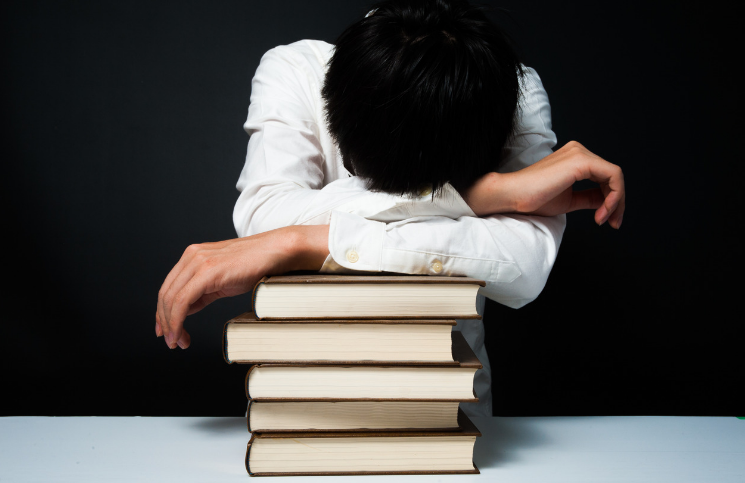Education and Inequality
The “great equalizer” of education can only nudge the scales so far.
By Greg Cunningham, Blended Learning Specialist
In his FY20 budget proposal, Governor Charlie Baker has waded into the discussion of fair funding for school districts in Massachusetts. He has proposed large increases for districts that have been clearly underfunded for years. While presenting the proposed changes and recognizing the fight many districts have been waging for years, some even threatening legal action against the state, Baker proclaimed the adage we have heard many times: “Education is the great equalizer.”
But is it? A Boston Globe special report from earlier this year seems to indicate that there may be more to a level playing field than just education. The Globe located and interviewed 93 of the 113 valedictorians of Boston’s public high schools from 2005 through 2007. One-quarter of these top graduates had yet to earn a bachelor’s degree. Another quarter aspired to become medical doctors while in high school but are nowhere near that goal. Four reported that they have been homeless for at least part of the time since graduation. These students represent the best and brightest the city has to offer. Many had already overcome great odds to graduate at the top of their classes, including learning English as a second language. An overwhelming majority were the first in their family to attend college.
From outside, it would seem that achieving admission to a Boston University or Boston College would bring advantages and opportunities leading inevitably to success in school and after. Just being among other successful high school students, with the quality of professors teaching their classes, should ensure that these top students from Boston would thrive.
But it didn’t turn out that way. Many valedictorians reported that they were not adequately prepared by their high schools for the rigors of college academics. They observed that the students around them were able to keep up with the fast pace of their classes, but they were not. Moreover, they did not know whom to approach or where to turn when they began to struggle academically. The professors speaking at the front of vast lecture halls seemed so distant as to be inapproachable.
Their struggles were not only academic, however. Many realized quickly that they did not fit in with students who arrived on move-in day in BMWs and seemed to know instinctively how to maneuver through the red tape and complexities of living on their own for the first time. Suburban students had a clear economic advantage, which gave them a head start in mastering college living. Some of the Boston valedictorians had to work one or two jobs to cover tuition and fees not covered by scholarships. Some had to make sure their families back home had food on the table. These non-academic pressures contributed to their college struggles.
Even those who managed to graduate with a bachelor’s degree have struggled. They found that they did not have the family and social networks, or the professional networking skills and access to people who could help them find employment after college. In a struggling post-recession economy, these graduates could not get a foot in the door to prove their worth. The doors only opened to job-seekers who already knew people on the inside.
There were indeed some success stories among the valedictorians. Some have start-up companies that are in a position to thrive while others have taken positive steps in the workforce and are heading toward leadership roles in the city in which they grew up.
But the fact that so many of these students have struggled to find success should be a wake-up call not only to educators but to civic leaders as well. The academic disadvantages that many reported, coupled with the social and economic disadvantages, forced many of these brightest high school stars to drop out of college. Feeling that they did not belong socially or academically, at a disadvantage on day one, they could not find a way to thrive, or even survive. Schools alone cannot solve this problem. Urban communities need to focus on social and economic inequality along with academic rigor to find ways to ensure that education can actually be the equalizer it should be.
A solid academic foundation in high school is indispensable, but many students need additional help navigating the complexities of college. Some colleges that welcome students from diverse educational and economic backgrounds require a course on navigating college life. These courses focus on basic survival skills like what to do when struggling academically and how to navigate the financial aid maze. All colleges, especially prestigious ones, that make the laudable effort to admit students from challenged backgrounds have the parallel responsibility to ensure that those students have the tools and support to survive and succeed.
Only 14% of the Boston valedictorians interviewed are making more than $100,000 annually, while 35% of their suburban counterparts have reached that level. Success cannot always be measured in dollars alone, but when Boston’s best and brightest cannot work their way into the economic middle class, the process of inequality becomes cyclical. The next generation are more likely to face the same social and economic obstacles as their parents.
The road to improved urban education in this state is long, and boosting budgets to underfunded schools is a good first step. But the families of urban students need help to reach greater economic equality to put their children on a more level footing with suburban peers. Until this leveling happens, the “great equalizer” of education can only nudge the scales so far.





